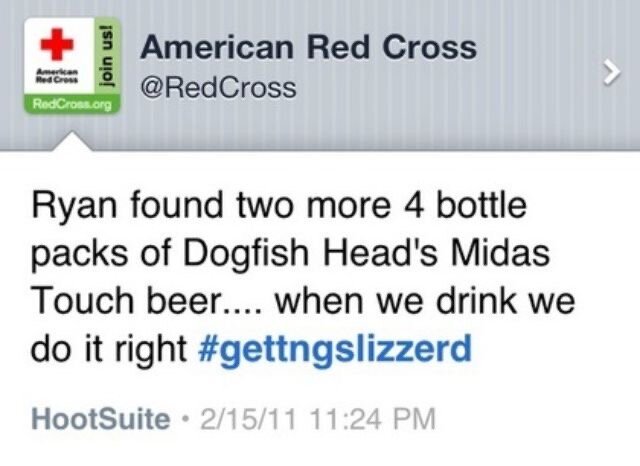No other industry or discipline has been affected more by the ramifications of social media and online engagement more than Public Relations. (PR)
Classicaly, PR was all about getting the word out and social media has changed that in a number of ways. More and more, PR is about getting the word back in and managing online engagement gone very wrong.
Everything from rogue employees who trip up, to bad press or reviews about your brand will spread like wildfire across the tubes. Bad customer service or negative reactions to an ad campaign or product are shared online every day. It’s one of the reasons companies shy away from social media - but what they don’t understand is, that this is exactly why they and their PR people need to be there.
Individuals now have a voice, and when they share negative brand experiences with friends and followers, PR is often called upon to fix it. If your greatest asset as a PR person is who you can fax things to, then you are about 20 years behind. You need to get to know the world of social media.
PR no longer only stands for Public Relations, it means People React, People Respond and People Reach out.
When you tweet for the most recognized brand in the world and you mess up, people notice. You know that time you accidentally sent a DM as a tweet and freaked out, rushing back in to delete it, thankful that only about three people caught it? That doesn’t work for an international organization. People see. They take screenshots. And they react. Deleting isn’t going to help; something needs to be done about it.
Most of the time, accounts delete and apologize. They explain they were wrong, misinformed, or perhaps even hacked. The original comment is removed, and the company works hard to make people forget and move on. Depending on how emotive the post, and who you’ve managed to offend, this may or may not work. The thing is, online, what you say can live forever.
I think instead of running from these mistakes, we should face them and use them as an opportunity to learn, demonstrate authentizity and be great.
Consider this tweet:
It was sent out by mistake under the Red Cross account. The women managing the Red Cross’s Twitter presence was using an app on her phone that allowed her to tweet from multiple accounts, and the rogue tweet was meant to come from her own personal account.
So what would you do if you sent something like this out on behalf of your brand, other than change your pants of course?
Would you: a. Delete the rogue tweet and pray nobody saw it. b. Apologize for the tweet, fire the person who sent it, and send out a press release. c. Decide to be awesome and tweet something shortly after, like the Red Cross did:
How awesome is that? This is my very favorite example of a brand recovery. I show it during my talks to audiences around the world. You would be hard pressed to find a bigger or more conservative brand out there than the Red Cross. Yet they had one of the best, and funniest, recoveries I have ever seen to a tweet gone wrong. So much so that, as rarely happens, the apology traveled further online than the initial incident. Dogfish Brewery saw the tweet, and the fallout, and decided to support a blood drive the following day. Turning something that could have gone wrong into something amazing. No hardline apology or public firing could ever have resulted in the same outcome. The company’s reaction matched the nature of the mistake perfectly.
The Red Cross’s decision to react to the tweet was simple and funny. It matched the nature of the mistake very well. Wendy Harman, director of social media for the American Red Cross, wrote about the story.
This is one of my favorite excerpts, and a brilliant explanation of how to respond to social media missteps:
After all, this wasn’t a purposeful message gone wrong and it wasn’t about the mission of our organization. Our Twitter account just tripped on the sidewalk, and instead of throwing a temper tantrum about tripping, we acted like any self-aware person would: we dusted ourselves off, looked around to acknowledge the trip with those who caught it, and had a chuckle with them.
Isn’t that a brilliant explanation? “Our Twitter account just tripped…” Being able to put your mistakes in business into perspective is a rare and awesome thing. We speak a lot about companies not reacting, or reacting too slowly or not effectively, but there is also a danger in overeating online. As we see with the Red Cross, it’s the ability to match our fix to the nature of a mistake that can make all the difference.
When the Red Cross’s reply went up, they didn’t just go back to bed. The brand was committed to the conversation and stayed up all night to respond to feedback. They understood that the nature of social media would require Wendy to be there, present and ready to respond actively. Caring enough about people’s reactions shows so much about her understanding of how this event needed to be managed. Now, I never saw the initial tweet. I didn’t know that the Red Cross made a mistake. They chose to make their reaction louder than the mistake and in the end came out looking better than before it happened. Immediate. Accountable. Personality. This is a perfect example of all three in motion and how they can take a rogue tweet and turn it into brand magic.


